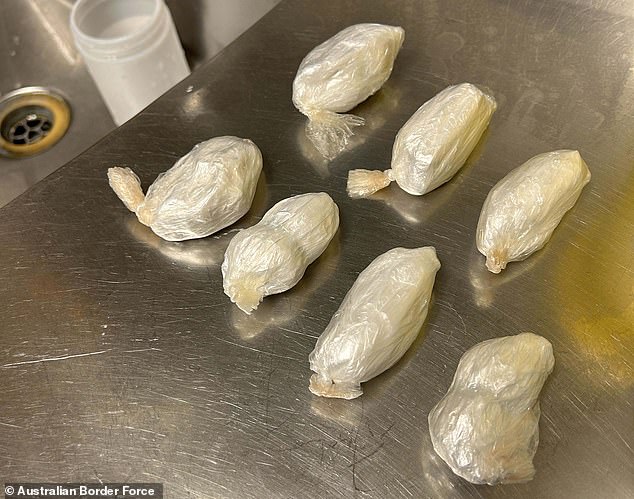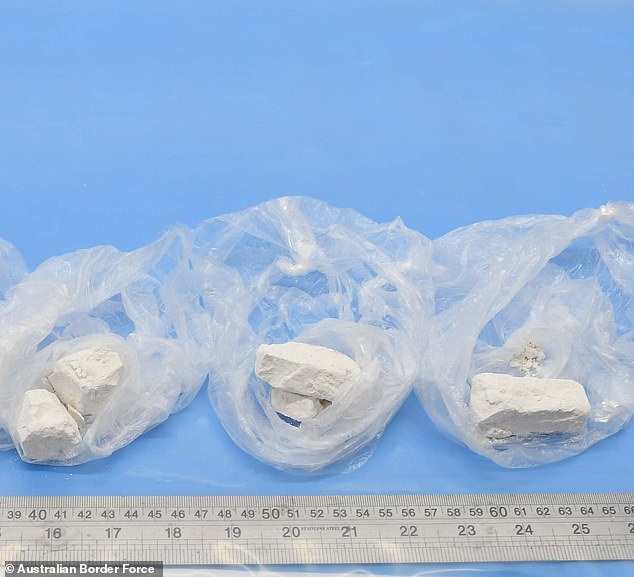<!–
<!–
<!– <!–
<!–
<!–
<!–
A couple have been charged with allegedly importing 255 grams of heroin into Australia by concealing the packages internally.
The couple’s luggage was examined by Border Force officers when they landed at Perth Airport on February 14 on a flight from Asia, and their mobile devices contained images of what police allege are illegal drugs.
The man and woman, both aged 48, were escorted by Australian Federal Police officers to a medical facility for further examination.
Subsequent scans revealed what appeared to be a series of pellets that had been inserted into both of their colons.
The AFP alleged that the man subsequently excreted six pellets containing approximately 115.4g of heroin in total, while the woman allegedly excreted seven pellets containing 139.7g of heroin in total.
The drugs would be worth about $127,000 on the street, police said.

Body scans allegedly revealed six packets in the man’s colon and seven in the woman’s.


The AFP said the drug has a street value of $127,000 and appears to be in solid shape.
AFP Acting Commander Peter Hatch said anyone who smuggles drugs internally not only risks a significant prison sentence but also runs serious risks to their health.
“We know that these pellets can explode in the stomach or other parts of the body, causing a significant risk of a devastating overdose,” Acting Commander Hatch said.
‘This issue should serve as a warning to the community: this is your drug supply chain in action. Illicit drugs are not produced in sterile environments and are certainly not transported in hygienic conditions.
‘If you ever consider using illegal substances, think about their possible origin. In this situation, the drugs were found in the colon of an alleged courier before being sold and used.
“The AFP will continue to work closely with ABF and other partners to ensure our airports remain a hostile environment for criminal syndicates.”
tBoth the man and woman have been charged with importing a marketable quantity of a border-controlled drug, contrary to section 307.2(1) of the Criminal Code Act 1995.
The maximum penalty for this crime is 25 years in prison.

